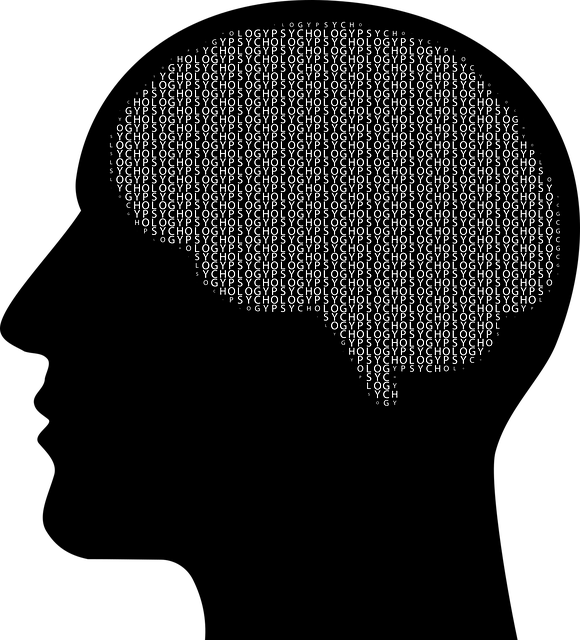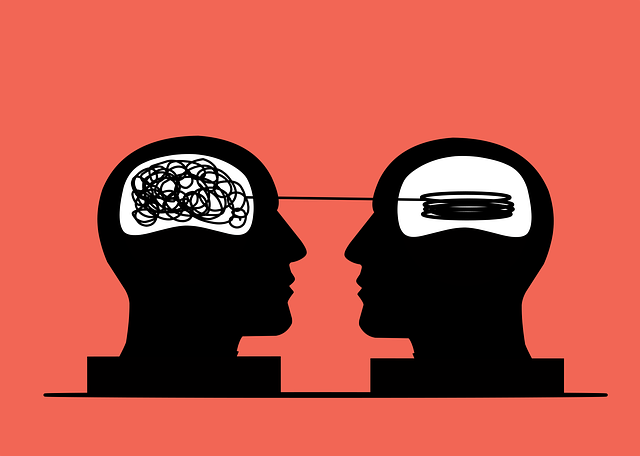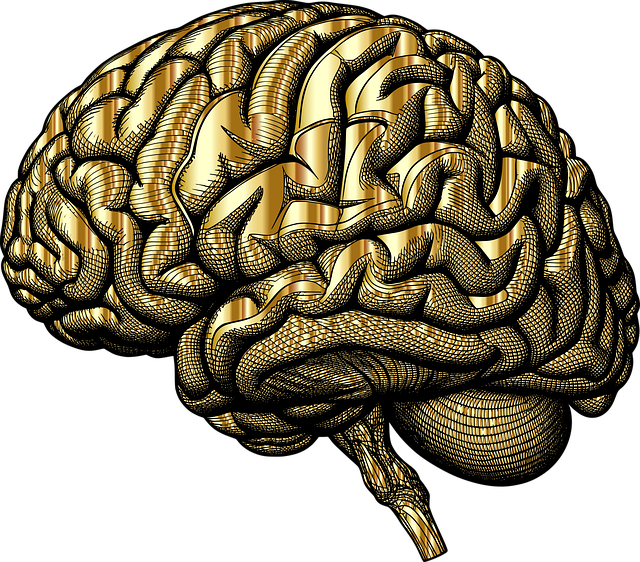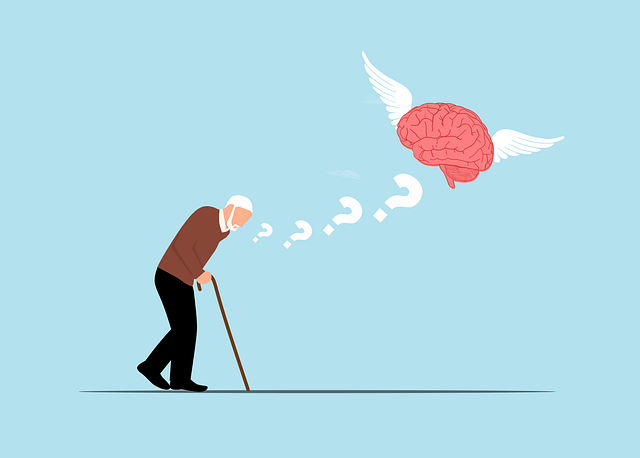Emotion regulation techniques, especially those offered by Littleton Dissociative Disorder Therapy (LDDT), are crucial for managing mental health conditions like dissociation and trauma. LDDT provides a structured environment to explore emotions without triggering dissociative episodes, integrating mindfulness, cognitive restructuring, and experiential exercises. This holistic approach not only reduces symptoms but also boosts emotional resilience and prevents burnout in therapists. Effective emotion regulation techniques, including communication strategies, prevent depression, enhance overall mental health, and improve daily functioning.
Emotion regulation is a crucial skill for maintaining mental well-being, especially for individuals with conditions like dissociation. This article explores effective techniques for teaching emotion regulation, focusing on the role of therapies like Littleton Dissociative Disorder Therapy (LDDT). We’ll delve into its impact on mental health, key strategies, practical applications, and inspiring case studies. By understanding LDDT’s approach, you’ll discover how these skills can be integrated into daily life, fostering better emotional management.
- Understanding Emotion Regulation and Its Impact on Mental Health
- The Role of Littleton Dissociative Disorder Therapy in Teaching Emotion Regulation
- Key Techniques for Effective Emotion Regulation
- Practical Applications and Daily Integration
- Case Studies: Success Stories from Emotion Regulation Technique Teaching
Understanding Emotion Regulation and Its Impact on Mental Health

Emotion regulation techniques play a pivotal role in mental health management and healing processes, especially for individuals dealing with complex conditions like Littleton Dissociative Disorder Therapy (LDDT). Understanding emotion regulation involves recognizing one’s emotional responses, triggers, and developing healthy coping mechanisms to manage them effectively. This process is crucial as it empowers individuals to navigate their internal experiences with greater control, reducing the impact of intense or distressing emotions.
Cultural sensitivity in mental healthcare practice is essential when teaching emotion regulation techniques. Empathy building strategies, tailored to an individual’s cultural background and personal history, can significantly enhance therapy outcomes. Mental health education programs design should incorporate diverse perspectives to ensure inclusive learning environments. By fostering a deep understanding of emotional processes, these approaches contribute to improved overall well-being and resilience, allowing individuals to lead more fulfilling lives despite the challenges they face.
The Role of Littleton Dissociative Disorder Therapy in Teaching Emotion Regulation

The Littleton Dissociative Disorder Therapy (LDDT) approach plays a pivotal role in teaching emotion regulation techniques, particularly for individuals dealing with dissociation and trauma-related conditions. This therapeutic method goes beyond traditional talk therapy by focusing on helping clients understand and manage their emotional experiences more effectively. Through LDDT, mental health professionals learn to facilitate a safe and structured environment, enabling individuals to explore and process complex emotions without causing further distress or triggering dissociative episodes.
By incorporating elements of mindfulness, cognitive restructuring, and experiential exercises, LDDT equips clients with practical tools for real-life application. This holistic approach not only addresses the symptoms of dissociation but also empowers individuals with improved emotional resilience. Moreover, as mental health professionals engage in this therapy’s practices, they gain valuable insights into burnout prevention strategies, enhancing their own well-being and enabling them to better support their clients’ journeys towards better emotion regulation.
Key Techniques for Effective Emotion Regulation

Emotion regulation techniques are essential tools for maintaining psychological balance and promoting emotional well-being. One effective approach is mindfulness, which involves actively focusing on the present moment, accepting emotions as they arise, and observing them without judgment. This practice can be particularly beneficial for individuals with Littleton Dissociative Disorder Therapy (LDDT) clients, helping them to stay grounded and manage disassociative symptoms.
Other key techniques include cognitive restructuring, where individuals challenge negative thought patterns and replace them with more adaptive ones, and communication strategies that encourage open and honest expression of emotions. Depression prevention is also addressed through these methods by fostering a sense of control and resilience in managing intense feelings. Effective emotion regulation not only enhances overall mental health but also improves relationships and daily functioning.
Practical Applications and Daily Integration

The practical applications of emotion regulation techniques extend far beyond therapy sessions, offering valuable tools for individuals to manage their emotions in everyday life. These strategies are particularly beneficial for those with conditions like Littleton Dissociative Disorder Therapy (LDDT), where emotional regulation can be a significant challenge. By integrating these techniques into daily routines, individuals can foster resilience and adaptability in the face of stress and adversity.
Cultural sensitivity in mental healthcare practice plays a crucial role here. Empathy building strategies, which enhance emotional intelligence, allow therapists to guide their clients towards effective self-regulation methods tailored to their unique cultural backgrounds. This personalized approach ensures that daily integration becomes not just a coping mechanism but a meaningful part of one’s identity, fostering a profound sense of agency and emotional well-being.
Case Studies: Success Stories from Emotion Regulation Technique Teaching

In the realm of emotion regulation techniques teaching, case studies offer a vibrant tapestry of success stories that underscore the profound impact of skilled guidance. For individuals grappling with dissociative disorders, such as those seeking Littleton Dissociative Disorder Therapy, these strategies can be transformative. One notable example involves a young adult who had struggled with dissociation for years, leading to significant impairments in daily functioning. Through a combination of cognitive-behavioral therapy and mindfulness practices taught by experienced professionals, they learned to manage their symptoms effectively. This shift enabled them to reengage with their passions, improve relationships, and achieve a greater sense of control over their emotional landscape.
The success of such interventions extends beyond individual cases, as evidenced by the growing popularity of Stress Management Workshops Organization and Conflict Resolution Techniques within therapeutic settings. By integrating these evidence-based methods, mental health professionals are fostering not just emotional stability but also enhanced resilience among their clients. This holistic approach not only empowers individuals to navigate life’s challenges more adeptly but also reverberates in improved overall well-being, showcasing the profound potential of emotion regulation techniques teaching.
Emotion regulation techniques, particularly those derived from evidence-based practices like Littleton Dissociative Disorder Therapy, have proven instrumental in enhancing mental health. By understanding the impact of emotional control on overall well-being and employing key strategies such as mindfulness, cognitive reappraisal, and acceptance, individuals can effectively navigate life’s challenges. Practical integration of these techniques into daily routines offers a promising path towards resilience and improved quality of life. Case studies highlight the transformative power of teaching emotion regulation, providing tangible evidence of its effectiveness in various contexts. Continued exploration and dissemination of these methods are essential to empower folks with the tools needed for thriving emotional health.









